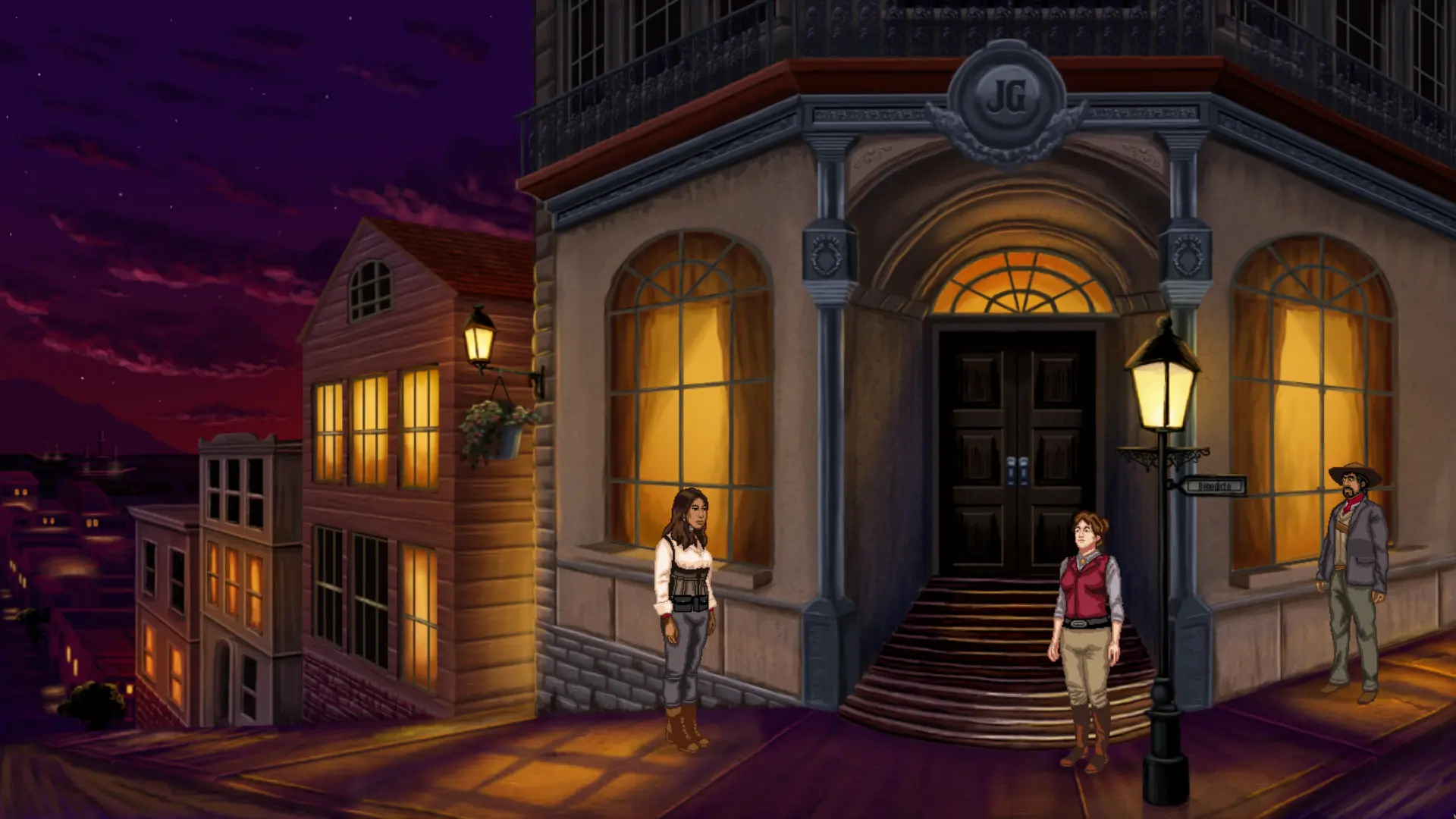The adventure begins, fittingly, aboard a train—just as any classic Western should. Rosewater, a Western-themed point-and-click game with spiritual ties to Lamplight City, reimagines the genre through a steampunk-laced alternate history. Developed by Grundislav Games and published by Application Systems Heidelberg, Rosewater offers an engaging narrative that prioritizes character and curiosity over conflict and gunfire.
Players follow Harley Leger, a journalist en route to her new job at the Rosewater Post. What starts as a simple assignment—interviewing Wild West entertainer Gentleman Jake Ackerman—quickly evolves into a treasure hunt sprawling across the untamed frontier. Harley joins forces with an eclectic group, including Jake himself, his assistant Danny Luo, resistance leader Filomeno “Phil” Marquez, aspiring doctor Nadine Redbird, and their resolute driver Lola Johnson. Their journey across the West unfolds aboard Lola’s wagon, filled with frequent stops to help, explore, and interact with the diverse inhabitants of this imaginative setting.
An Intriguing and Unhurried World
The game’s version of the American West deviates from traditional tropes. Rather than focusing on gunslingers and shootouts, it leans into mystery and discovery, propelled by the consequences of a fictional scientific advancement called “aethericity.” This allows for a backdrop that is more contemplative than violent, making the game feel like a thoughtful road trip punctuated with moments of tension and whimsy.
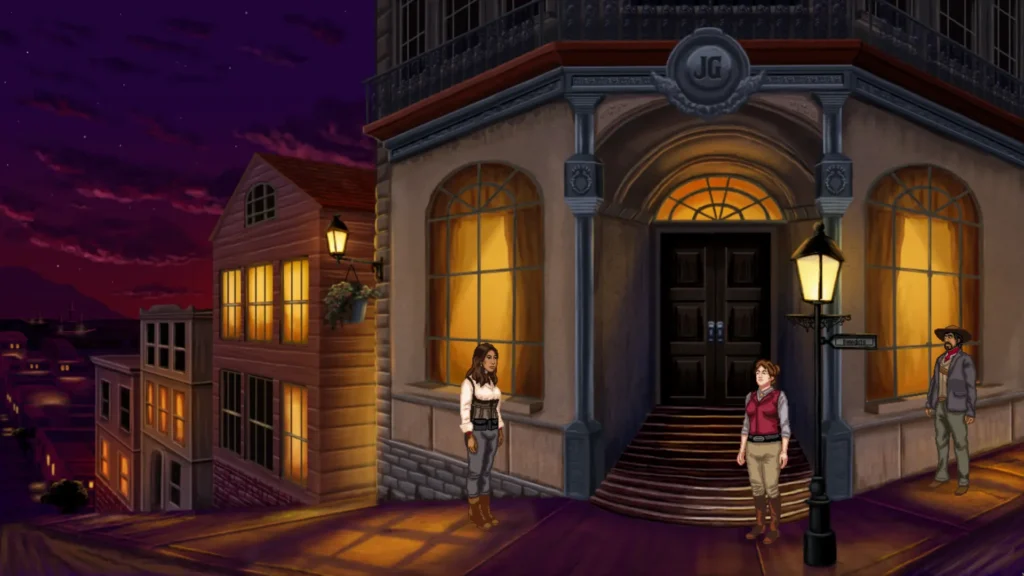
As a protagonist, Harley suits this vision perfectly. Her strengths lie in observation, determination, and a drive for the truth. She’s not on a mission for revenge or riches but on a quest for a story. That shift in perspective creates a tone that’s more meandering than mission-driven, lending the game a relaxed pace that some might find refreshing while others may consider aimless.
Colorful Companions and Memorable Encounters
What sets Rosewater apart is its cast and how they are interwoven into the story. From Danny’s gullibility during an encounter with a fraudulent psychic to Lola’s covert affection for a neglected puppy, these character moments breathe life into the game. Some interactions, like when Phil faces the consequences of his past decisions during a tense reunion, offer emotional depth rarely seen in point-and-click adventures.
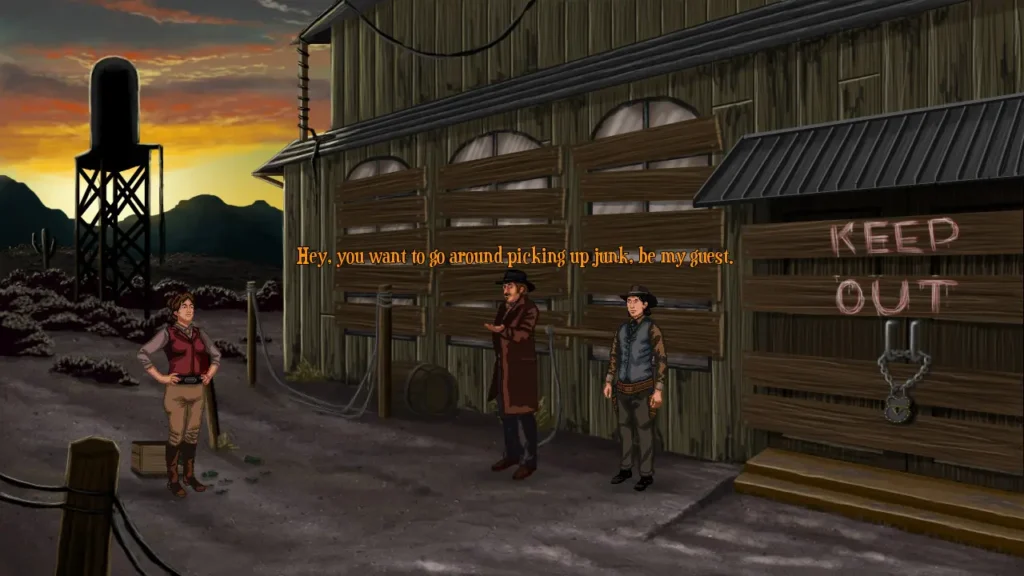
The road trip is structured as a series of story vignettes—some randomly triggered, others more elaborate. The puzzles tied to these moments are generally well-balanced, offering enough challenge to feel satisfying without becoming exhausting. One highlight involves the group seeking shelter with a retired sea captain, leading to a quirky séance-like sequence that’s as bizarre as it is rewarding.
Pacing, Puzzles, and Pitfalls
While the puzzles hold up well, not all gameplay elements land as smoothly. Minigames are a weaker aspect, often feeling like filler until Harley decides she isn’t skilled enough to continue and lets a companion take over. Activities like fishing are tolerable, but others—like a poorly executed sharpshooting challenge—detract from the experience. A late-game map mechanic also proves more frustrating than helpful, due in part to the simplistic visual design.
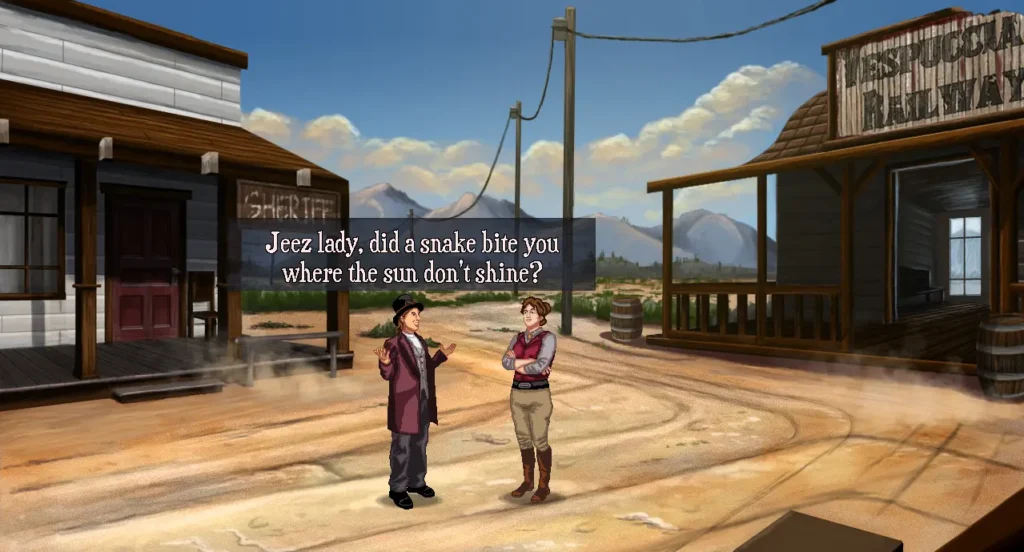
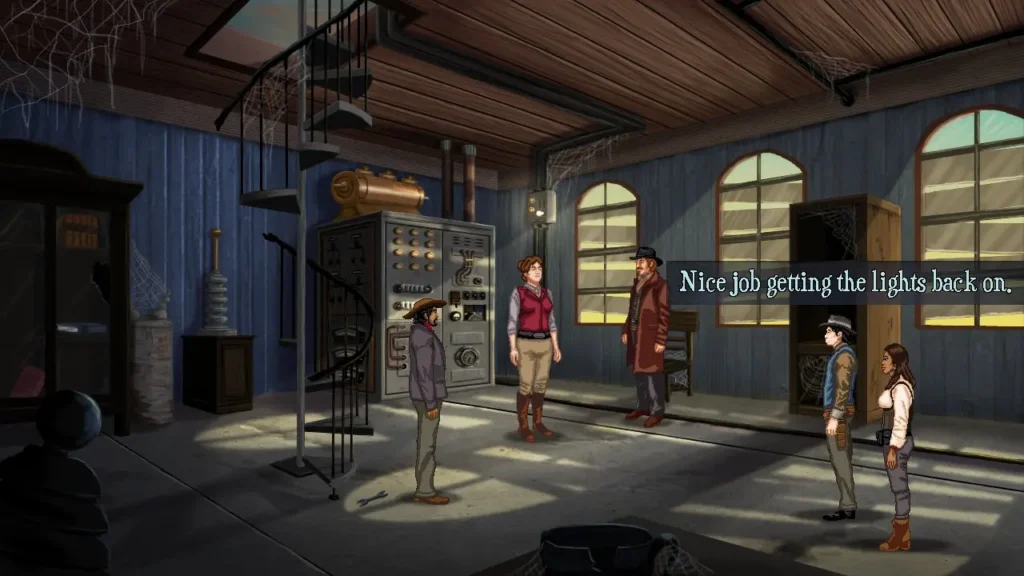
Despite these bumps, the story’s tone and Harley’s narration maintain a sense of cohesion. Her dry wit and insightful reflections, especially through her journal entries, provide a strong emotional anchor. Even in outlandish situations—whether experimenting in a mad scientist’s lab or fending off suspicious cultists—Harley’s poise keeps the game grounded.
Shifting Gears Toward the Finale
As the journey nears its end, the tone gradually tightens. The expansive, open atmosphere gives way to a more claustrophobic feeling as the party enters El Presidio. The looming presence of urban power structures contrasts with the earlier sense of freedom, adding tension and gravity to the finale. This tonal shift reflects the characters’ growing unease and highlights the distance from the lawless frontier they had embraced.
The game uses its unique setting to reflect on the myth of the West—not as a domain for conquest but as a sanctuary. It acknowledges the violent legacy of imperialism, especially its impact on Native populations and New Spanish communities, yet emphasizes quieter, more human stories. The people Harley encounters are not carving out empires but simply trying to survive and find their place.
A Future Looking Westward
More than anything, Rosewater envisions the West as a space of potential—a refuge rather than a battlefield. The treasure at the heart of the journey is almost incidental, tied to a disgraced scientist and a scandal long past. This detachment from traditional stakes allows the game to focus on personal growth, not only for Harley but for those she meets along the way.
Equipping Harley with a notebook instead of a weapon is no accident. Her strength lies in observation and empathy, and Rosewater thrives in those quieter moments where character and setting take center stage. The game invites players to pause, to listen, and to explore a reimagined West that feels familiar yet distinct.
